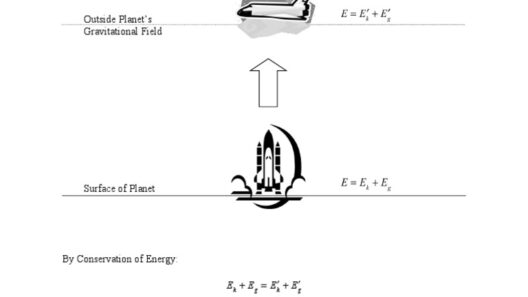In the realm of automotive lubricants, the quest for optimizing engine efficiency while minimizing ecological impact is paramount. One such contender in this arena is Mobil 1 10W-40, a fully synthetic engine oil that claims to be ‘energy conserving.’ This designation invites scrutiny regarding its true efficiency in conserving energy and ultimately contributing to the environmental ethos of sustainability. The aim here is to dissect the claims surrounding Mobil 1 10W-40, elucidating its composition, performance under varied conditions, and practical implications for energy conservation.
To begin with, it is essential to comprehend what the term “energy conserving” entails within the automotive lubricant sector. This designation typically refers to motor oils that possess properties allowing them to reduce the amount of energy required to pump the fluid through the engine. In essence, energy-conserving oils facilitate better fuel economy by lowering friction between moving parts, thereby enabling the engine to perform optimally. Mobil 1 10W-40 touts such capabilities, ostensibly designed for high performance while preserving energy.
Examining the composition of Mobil 1 10W-40 reveals its synthetic nature, a significant advantage in the context of high-performance lubricants. Synthetic oils are engineered through chemical processes, yielding molecules designed for superior fluidity and efficiency across a wide range of temperatures. This characteristic is particularly beneficial during cold starts, where conventional oils may struggle to flow and effectively lubricate engine components. Mobil 1’s proprietary formulation also contains advanced additives that enhance its wear-protection capabilities and resist thermal breakdown, factors that may further contribute to energy efficiency in the long run.
Importantly, the viscosity grade of 10W-40 signifies that this lubricant is sufficiently versatile, capable of maintaining effective lubrication during varied temperature fluctuations. The “10” in the grading denotes its ability to perform satisfactorily in colder climates, while the “40” indicates its protective qualities at higher operating temperatures. This adaptability is crucial, considering the diverse driving conditions encountered by vehicles globally. Therefore, understanding the viscosity parameters can help consumers make informed choices based on their environment and driving habits.
As with any claim, empirical evidence is essential to validate whether Mobil 1 10W-40 truly lives up to its ‘energy conserving’ moniker. Evaluating data from independent industry testing provides a clearer picture. Numerous studies indicate that synthetic oils, including Mobil 1, tend to outperform conventional oils in fuel economy tests. The friction-reducing properties of Mobil 1 contribute to lower energy losses compared to traditional lubricants, validating its energy-conserving claims. However, results can vary based on factors such as driving style, engine condition, and the specific vehicle model.
The performance of Mobil 1 10W-40 can be particularly striking in stop-and-go traffic situations—common in urban environments. Vehicles frequently oscillating between acceleration and deceleration can benefit from the oil’s ability to maintain optimal viscosity under assorted operating conditions. Moreover, consistent use can lead to prolonged engine life by minimizing wear, which can also indirectly enhance fuel economy, as a well-maintained engine tends to operate more efficiently. Over time, this may cultivate a cycle of energy savings and reduced environmental impact.
However, one must consider the broader implications of adopting synthetic lubricants like Mobil 1 10W-40 on sustainability practices. While the operational benefits of improved fuel economy are evident, the production of synthetic oils often raises concerns related to environmental degradation and resource consumption. The process involves the use of petrochemicals, which, while providing advantages in efficiency, derives from non-renewable resources. Therefore, evaluating the overall lifecycle impact of such products remains a critical aspect of eco-friendly practices in automotive maintenance.
In the discourse of energy conservation, one must also acknowledge the role of routine vehicle maintenance in enhancing performance and efficiency. Utilizing a high-quality lubricant like Mobil 1 10W-40 is merely one component of a more extensive maintenance philosophy. Adhering to regular oil changes, maintaining proper tire pressure, and ensuring timely engine tune-ups are equally integral to optimizing fuel efficiency. Educating consumers on these combined practices can yield significant benefits in energy conservation and environmental stewardship.
An additional dimension of the conversation surrounding Mobil 1 10W-40 is its alignment with regulations and standards set forth by organizations such as the International Lubricants Standardization and Approval Committee (ILSAC) and the American Petroleum Institute (API). These bodies provide oversight to ensure that lubricants meet stringent performance and quality benchmarks. Mobil 1 has consistently achieved the necessary classifications, reflecting its commitment to quality and energy efficiency in automotive applications.
Ultimately, the question of whether Mobil 1 10W-40 is genuinely ‘energy conserving’ hinges on multifaceted considerations, ranging from molecular engineering to real-world application. By capitalizing on advanced synthetic technology and additive chemistry, this motor oil demonstrates capabilities that veer towards energy conservation and enhanced efficiency. However, it is incumbent upon consumers to recognize that using such a product is but a part of a larger initiative to foster responsible vehicle maintenance and sustainable practices.
In conclusion, while Mobil 1 10W-40 embodies a substantial step towards energy conservation in the automotive industry, it is essential to regard such claims with a critical lens. Through informed decision-making and a holistic approach to vehicle maintenance, consumers can actively participate in promoting energy efficiency and environmental responsibility. The road towards sustainability is paved not only with innovative products but also with conscientious behavior that collectively inspires a greener future.








